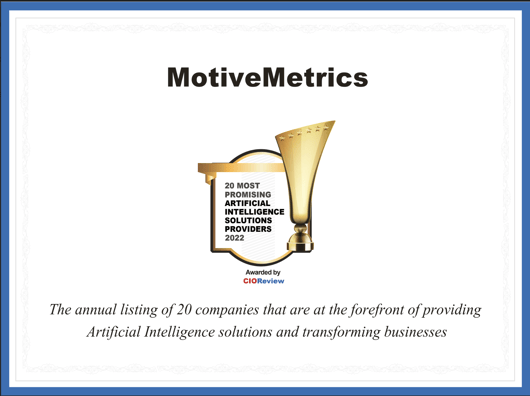AI Stitch in Time: Podcast Chat
![]()
MotiveMetrics Chief Scientist, Kyle Thomas, joined the AI Chat Podcast to talk about the future of AI in Marketing. "The human can come up with a creative campaign and AI has the ability to stitch together image generation along with language generation and help bring that vision to life. The trend is not some earth-shattering difference or some new thing we have not thought about. The puzzle pieces are out there and the race is on to make them usable."


